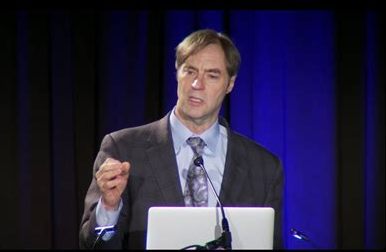|
Word Gems
exploring self-realization, sacred personhood, and full humanity
Dr. Stephen C. Meyer's
Scientific Evidence For A Creator
|
theistic implications of intelligent design
|
return to 'scientific evidence' main-page
 |
| Dr. Stephen C. Meyer |
quoted from Dr. Meyer's writing, Scientic Evidence for a Creator
SO WHY IS A DISCUSSION OF THE
the theory of intelligent design important in a
discussion about science and faith? After all,
proponents of intelligent design have often
argued that the method of design detection
outlined here does not necessarily make it
possible to determine the identity of the
intelligent agent responsible for any
particular designed system or artifact—only
that such a system or artifact was designed by
an intelligent agent of some kind. In addition,
proponents of intelligent design, such as
myself, insist that the case for intelligent
design is based upon scientific evidence and
upon established methods of scientific
reasoning—not religious belief or authority.
All that is true. Nevertheless, as I’ve also
argued, although the case for intelligent design depends
upon scientific evidence and methods of reasoning, it
may well have larger theistic implications. And, as I argue
in my book Return of the God Hypothesis, the evidence for
intelligent design in life and in the universe—when
considered together—does point strongly to a transcendent designing intelligence—i.e., God—rather than an immanent designing agent within the cosmos itself.
Of course, some scientists, such as Francis
Crick, Fred Hoyle, and even Richard Daw-
kins, have postulated that an intelligence
elsewhere within the cosmos might explain
the origin of the first life on Earth.
Crick proposed this idea after candidly
acknowledging the prohibitively long odds
against life arising spontaneously here on
Earth. He consequently proposed that life
first arose by some undirected process of
chemical evolution somewhere else in the
universe and then continued to evolve,
eventually producing an intelligent form of
alien life.
This immanent intelligence—an
extraterrestrial agent rather than a
transcendent God—designed and then
“seeded” a simpler form of life on Earth.
Hence, the term panspermia (from the Greek
pan, “all,” and sperma, “seed”).
Though logically possible, I’ve never
found this explanation for the origin of life or
the origin of biological information satisfying.
For one thing, any theory of the origin of life,
whether purporting to explain the origin of
the first life here on Earth or elsewhere in the
cosmos, must account for the origin of the
specified information necessary to configure
matter into a self-replicating system—some-
thing that most biologists take as a sine qua
non of a genuinely living organism. Yet those
who propose panspermia have not explained,
or even seriously grappled with, the problem
of the origin of specified biological information.
Simply asserting that life arose some-
where else out in the cosmos does not explain
how the information necessary to build the
first life, let alone the first intelligent life,
could have arisen. It merely pushes the ex-
planatory challenge farther back in time and
out into space. Indeed, positing another form
of preexisting life only presupposes the exist-
ence of the very thing that all theories of the
origin of life must explain—the origin of spec-
ified biological information.
Beyond that, the panspermia hypothesis
certainly does not explain the origin of the
cosmological fine-tuning. Because the fine-
tuning of the laws and constants of physics
(and the initial conditions of the universe)
date from the very origin of the universe it-
self, the designing intelligence responsible for
the fine-tuning must have had the capability
of setting the fine-tuning parameters and ini-
tial conditions from the moment of creation.
Yet, clearly, no intelligent being within the
cosmos that arose after the beginning of the
cosmos could be responsible for the fine-tun-
ing of the laws and constants of physics that
made its existence and evolution possible.
Such an intelligent agent “inside” the universe
might reconfigure or move matter and energy
around in accord with the laws of nature.
Nevertheless, no such being subject to those
laws could possibly change the constants of
physics simply by changing the material state
of the universe. Similarly, no intelligent being
arising after the beginning of the universe
could have set the initial conditions of the
universe upon which its later evolution and
existence would depend. It follows that an
immanent intelligence (an extraterrestrial
alien, for instance) fails to qualify as an ade-
quate explanation for the origin of the cosmic
fine-tuning.
Instead, the fine-tuning of the universe as
a whole is better explained by an intelligent
agent that transcends the universe, one that
has the attributes that religious believers typi-
cally associate with God. Indeed, because the-
ism conceives of God as an intelligent agent
having an existence independent of the mate-
rial universe—either in a timeless eternal
realm or in another realm of time independ-
ent of the time in our universe—theism can
account for (1) the origin of the universe in
time (i.e., at a beginning), (2) the fine-tuning
of the universe from the beginning of time,
and (3) the origin of the specified information
that arises after the beginning of time that is
necessary to produce the first living organism.
Thus, deeper philosophical deliberation
about the evidence of intelligent design in life
and the universe may well lead to a theistic
conclusion. And that suggests, as many au-
thors of this book do, that science, properly
understood, may well have faith-affirming
implications.
|
